Two-by-twos: The sect with 2 many names and just as many problems (Part 1)
Bronwyn Rideout - 31st July 2023
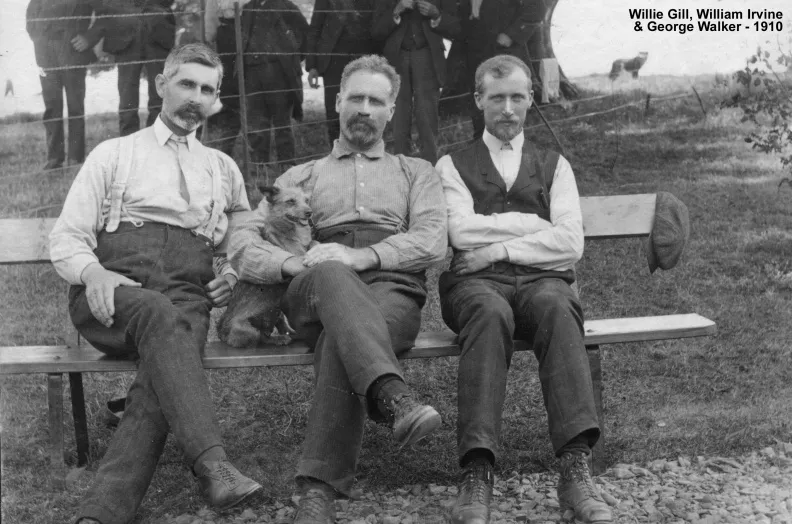
Source| William Irvine (Center) and early followers
The TL;DR version of this story is that the Two-by-Twos (TBT) is an international Christian home church movement of the protestant kind founded in Ireland in 1897. Their name is inspired by their ministers, celibate and single men and women, who travel in same-sex pairs and stay for weeks or months at a time with members who live in their jurisdiction; they commonly refer to themselves as The Truth. The TBT is nontrinitarian, meaning that they eschew the Christian doctrine that the holy trinity (Father, Son, and the Holy Spirit) are coequal, coeternal, and united in a single being; readers will be familiar with larger nontrinitarian groups like the Jehovah Witnesses, Christian Scientists, Unitarian and Unitarian Universalists Christians, and the Mormons. However, not all flavours of nontrinitarianism are the same, as the wikipedia page outlines and the TBT are unitarian in their outlook - The holy spirit is a force from God while Jesus is God’s fully human son. Amongst other beliefs are that the TBT knows the true path to salvation while other churches and religions are false; salvation is not attainable through the bible alone but through “works” as well.
But I wouldn’t be writing this article if the Two-by-twos were just a benign, protestant offshoot, now would I?
The TBT are incredibly secretive to the point where not only is there no official headquarters or church, there are no published religious texts; evidence of formal correspondence or any sort of church business is rare and there is no formal membership list. While operating a church like this means one misses out on the benefits of being a registered charity, shadier operations will clearly put a higher value on the non-existent paper trail and the lack of accountability allowed when there is no business structure. But, according to the TellingTheTruth website, followers of the TBT would argue that it is not an organisation, religion, or denomination nor is it incorporated or tax-exempt.
During his interview on the Podcast series Let’s Talk about Sects, Chris Johnston (who reported on TBT for 60 Minutes in 2013) points out that within Australia the TBT had several trusts and, at least in Victoria, was registered as a charity. But charity status didn’t matter much because rather than the charity holding the money, the money was held in private bank accounts; furthermore, the Victorian TBT charity was deregistered soon after Prime Minister Scott Morrison announced the National Redress Scheme, which was intended to hold institutions accountable for institutional child sexual abuse by making them financially liable for the provision of redress services such as counselling, etc.; groups that didn’t sign-up were threatened with removal of their charitable status and restrictions on future funding. Basically, the TBT were willing to sacrifice charity status to protect their money and avoid responsibility.
But before we go into why the TBT would shirk accountability, we need to appreciate a bit more about this group, their beliefs, and the controversies that it struggles to keep under wraps.
Origins
TBT founder William Irvine was born in Scotland in 1863. As an adult, he worked in a coal mine until his early 30s when he was converted during a revival mission and spent a couple of years at a Bible Training Institute. After completing his training, Irvine joined the evangelical Faith Mission and gained a reputation as a born leader and teacher. While in Scotland Irvine was a popular preacher amongst the young workers, many of them Irish and/or unemployed, due to his skill in balancing his evangelism with Christian socialist sensibilities. Irvine eventually became dissatisfied with teachings of the Faith Mission and in 1897 started recruiting followers to his own, “new church” while encouraging them to give up their worldly goods and follow what he called The Alpha Message and use the teachings in Matthew 10 to rid the world of impure spirits. Because of their itinerant nature, followers of Irvine who served as ministers were called Tramp Preachers or Go Preachers. Nevertheless, Irvine’s nascent organisation still borrowed heavily from the Faith Mission; in particular, sending preachers out in groups of two.
Irvine’s ministry grew as more and more defected from Faith Mission and other local congregations. Amongst these converts was a man named Edward Cooney in 1901. Irvine’s wikipedia page notes that Cooney donated £1,300 from the proceeds of the sale of his worldly goods at a time when a family could survive on an annual income of £78. Irvine himself would not fully resign from the Faith Mission until 1901.
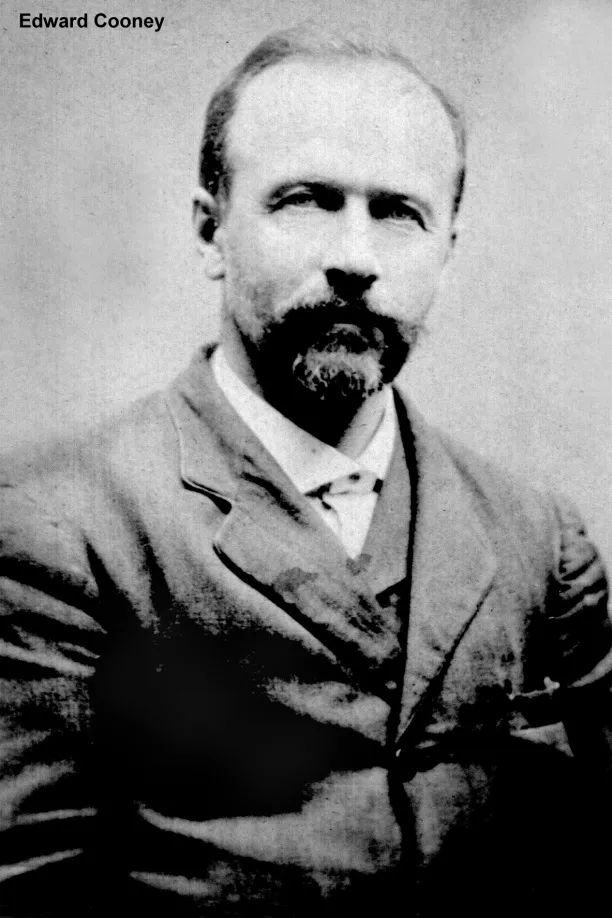
Source | Edward Cooney
In 1903 (as per The Secret Sect) (or 1901), a three week convention attended by 70 converts would be the true start of the TBT ministry. Not only would these new preachers practise poverty, chastity, and obedience, but would also reject all Christian doctrine and traditional forms of worship. It is suggested by Let’s Talk about Sects that 1907 was the year the TBT reached the shores of NZ and Australia, another source suggests that the first two workers arrived in Australia in 1904 and the first six, mostly female, workers arrived in New Zealand in 1905. Yet a third source suggests that an Irish couple who settled in Petone in 1901 were the first Friends of the TBT to settle in NZ before the 6 workers arrived to start their mission in 1905. An article about the groups infiltration of Australasia was published in Melbourne Truth (reprinted in NZ Truth) in 1907. The same article also reports the other names the group was known as including No-Sect Sect, The Cooneyites, The Irvineites, The Dippers, and The McClungites; The Conneyites and McClungites referring to followers of a particular preacher. Wilson McClung would eventually become overseer of New Zealand and immigrate here.
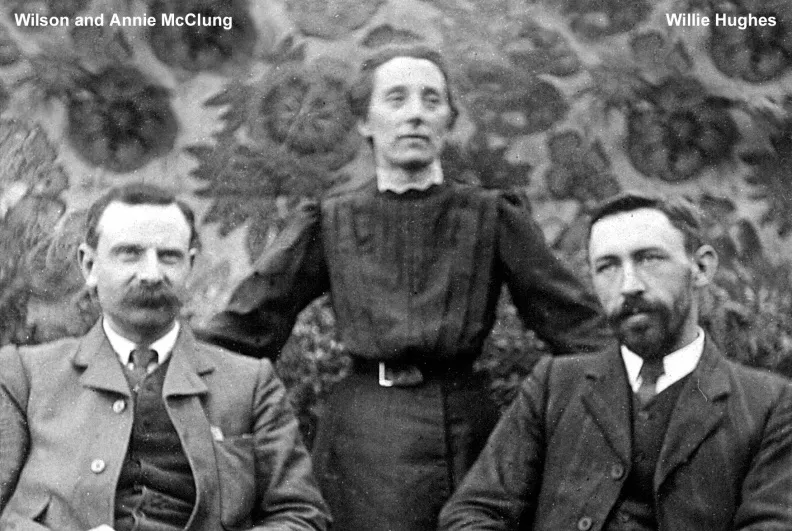
Source | L-R: Wilson McClung, Annie McClung, Willie Hughes
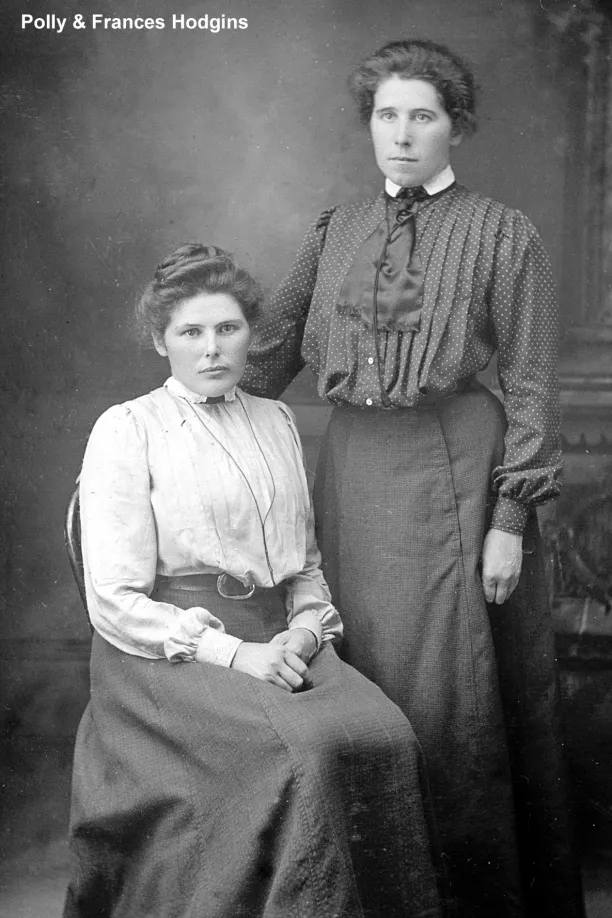
Source | Polly and Frances Hidgins. Frances was part of the first group of six workers in NZ. Their brother was the first Worker to die in the world.
In 1904, Irvine introduced a major TBT doctrine. The Living Witness Doctrine states that salvation could only be gained through hearing the preaching from one of their ministers and seeing the gospel physically lived through the works of the Workers. In 1904 (or 1908), TBT membership was divided into two categories: the homeless Workers who worked as missionaries and the Friends/Saints who kept their jobs, property and were thus expected to host and provide for the workers. Those who chose to become Workers were expected to give up their marriages and their children in order to preach. In her 1996 book The Church With No Name ex-member Lynn Cooper notes that current practice limits preaching to single men and women; modern Workers who want to get married are expected to give up preaching and are not allowed to preach again. Again, as the following grew, some senior workers became Overseers of certain geographical areas with Irvine having ultimate oversight. That ultimate oversight included control over donations and any money handed over by workers when they sold their possessions.
Irvine’s growing popularity did not sit well with everyone as his greed would eventually lead him to run afoul of his followers. There was a stark contrast between the workers who were faithful to their vows of celibacy and poverty and Irvine’s creature comforts. Irvine traveled the world to speak at conventions but demanded any money the preachers were given as donations be given to him; many of them were riding bicycles and eschewed world travel themselves because of the Mathew 10 teaching. Irvine was also accused of having a real weakness for female sectarians.
The First World War was a time of significant change for the TBT. In New Zealand, members and ministers were the largest segment imprisoned because they were unable to prove they were conscientious objectors. In 1913, female workers were recalled from their overseas postings or removed from the worker lists over concerns that their role wasn’t scriptural. However, after a year of no converts, the female workers returned to the field in 1914.
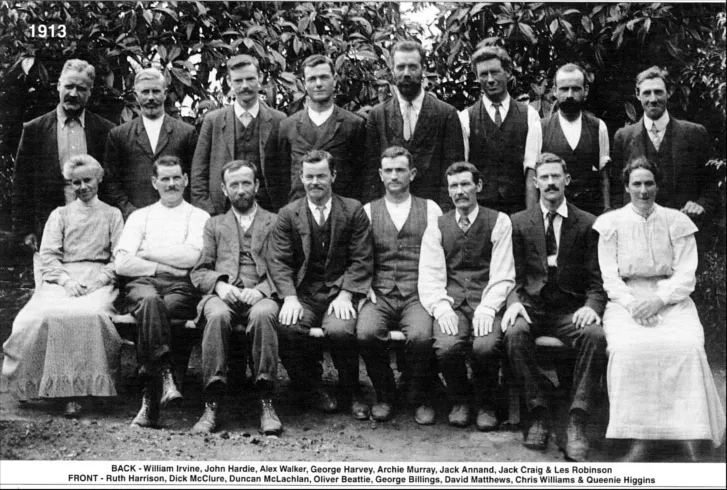
Source | 1913 New Zealand Convention with special guest William Irvine
But the biggest change that threatened to overhaul the entire fellowship came from the inside. In 1914, Irvine’s sermons began to transition to the second coming and claimed that he was divinely chosen by God as his prophet to tell the world. Called the Omega Message, Irvine warned that the time promised in his Alpha Gospel was coming to an end and included prophecies about the second coming of Jesus. Since there was no longer a need to share, the Workers no longer needed to engage in preaching. Overseers and Workers who had been with Irvine since the beginning chafed against these changes (and the possible loss of income and hospitality) and slowly started to freeze Irvine out from speaking at conventions.
Irvine was effectively ousted from his own group and relocated to Jerusalem to preach to his core followers about his Omega message there; this group would be known amongst themselves as Message People or The Witnesses and may be called The Man and Message. Irvine would go on to make several more failed prophecies about the Tribulation. Between 1914-1919, hundreds of Irvine’s supporters and direct followers were excommunicated leading to what is known as schism between them and the majority of Workers and Friends who still followed Irvine’s initial Alpha Gospel despite shunning him.
The larger group took great pains to diminish Irvine’s contributions to the TBT. This version of the TBT persisted until 1928 when Edward Cooney, who had given Irvine an obscene sum of money, was excommunicated by the TBT in Ireland. Cooney is described as a truly itinerant preacher who had amassed a following of his own worldwide. Cooney also found the hierarchy of the organisation to be distasteful nor did he adhere to another major TBT belief, The Living Witness Doctrine. Cooney would continue to win converts on his own and his followers discarded hierarchy in favour of loose fellowships and referred to themselves as Cooneyites. Many communities formed in Australia, particularly in New South Wales.
Prior to the schism, outsiders would refer to the whole TBT movement as Cooneyites due Cooney’s renown and popularity. As this broader usage persists to describe the whole movement when not all followers of the TBT are technically Cooneyites just adds to the confusion around names when researching. Interestingly, it is claimed that few members were even aware of the multiple schisms. As the original Workers and Overseers began to die between the 1940s and 1960s, new successors arose and traditions such as the annual conventions remain but the inbuilt lack of international cohesion has caused regional differences to become entrenched, causing friction between different TBT communities.
By Any Other Name
As displayed in this article, the TBT go by a multitude of names. Listed below are a selection of other names relevant to the broader group as well as specific to NZ/Aus.
-
Christian Conventions
-
United Christian Conventions of Australasia and New Zealand
-
Christian Assemblies of Australia and New Zealand
-
Fraserites (NZ)
-
No-Name Church
-
The Black Stockings
-
Meetings
-
Workers and Friends
-
The Way
-
The Fold
-
The Testimony of Jesus
Beliefs
Followers of TBT believe that they are following God’s only true way and thus all other churches, including Christian, are false. Home churches were the foundation of the sect’s early years as Irvine had a tendency to denounce the churches and institutions which meant that they did invite him to speak a second time. The Annual convention is still a feature of the TBT calendar and meetings consist of a midweek meeting and a sunday meeting. Occasionally, meetings are held that are open to the public. They use the King James Bible and have their own compilation of hymns, Hymns Old and New by R. L. Allan and Son.
While the TBT do not believe in original sin, they also do not believe in salvation by grace, thereby requiring them to follow rules set down by preachers. For some Christian writers like Lynn Cooper, this is unbiblical because this means salvation is based on what we do, not on our faith in Jesus.
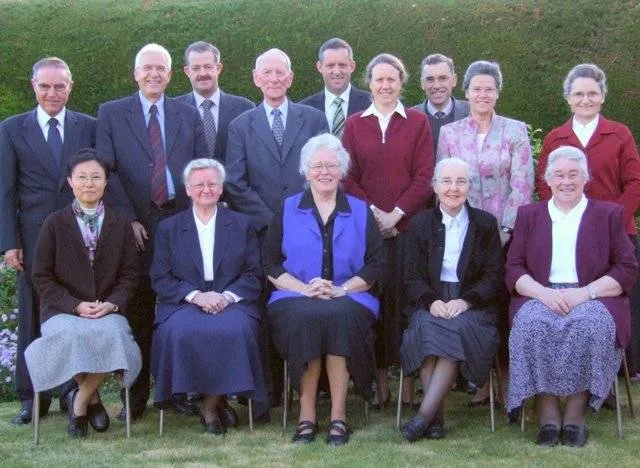
Source | Visiting Workers at the 2008 NZ Convention
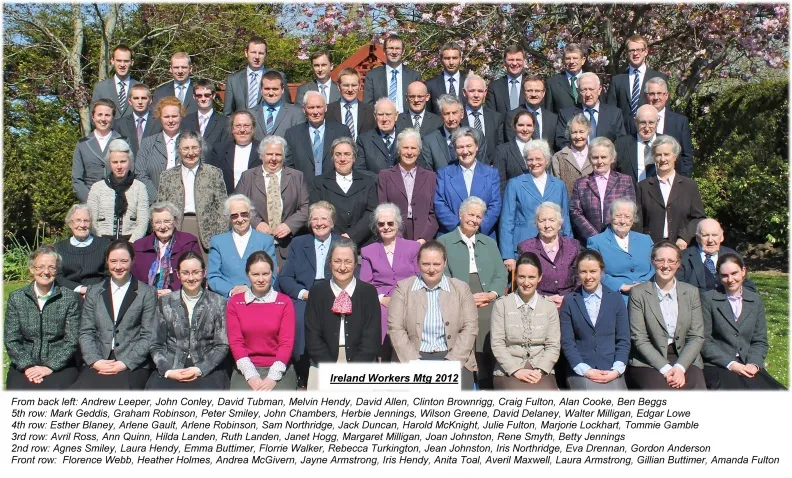
Source | 2012 Ireland Workers Meeting
According to Doug and Helen Parker, authors of The Secret Sect, person’s who committed themselves to be Workers in Australia had to give Overseers their property or the value of what they owned. When travelling, they would mostly live in the homes of members for months at a time, staying at the host’s expense. In her interview with Let’s talk about Sects, Laura McConnell Conti recalled that such stays were far from benign and were a sign of favouritism - the longer they stayed, the more you knew the leaders liked you. But, as Laura points out, the Workers also had use of your house and car and were more inclined to stay longer with families who had nicer things.
While McConnell Conti pursued higher education, it was not encouraged. While boys were more likely to graduate with a High School diploma, they were expected to return home and work for the family businesses e.g. farms. The TBT are often compared to the Brethren and Jehovah’s Witnesses with regards to their distrust of the outside world and fundamentalist Christian views. Women are expected to dress modestly and, at least in books and articles from the 1980s and 1990s, worldly objects such as televisions and radios were forbidden. Contemporary reports such as Laura’s indicate that these restrictions are loosening for many communities due to necessity (needing internet access for business) and wanting to stop the loss of members to the outside world. Still, marriage outside of the TBT is not encouraged in some communities and recruitment may be limited to persons who live nearby or associate with TBT communities or home churches.
Shunning and excommunication are practised although the latter appears to be rare.
Come back next week as I explore the current state of the Two-by-Twos and the controversies they have faced/avoided